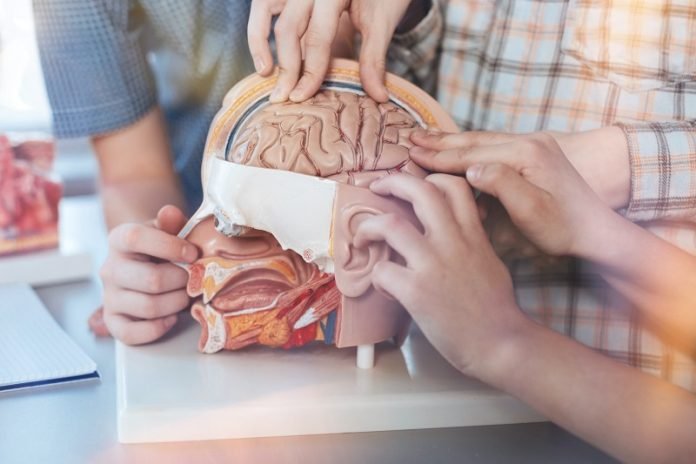
A groundbreaking study from Kent State University’s Department of Anthropology and School of Biomedical Sciences offers novel insights into human brain evolution and its implications for contemporary health issues, such as addiction and eating disorders.
Increased Neuropeptide Y (NPY) and Its Implications
The research, published in the journal PNAS, focuses on the role of neuropeptide Y (NPY) in the nucleus accumbens (NAc), an area of the brain responsible for motivation, action, and the reward system.
NPY has previously been associated with increased drug addiction, alcohol use, and fat intake.
The research suggests that the unique configuration of NPY and dopamine (DA) in the human NAc may have aided brain development but also made humans more susceptible to addictive behaviors and eating disorders.
Distinct from Other Primates
Drawing from postmortem brain specimens from various primate species, the study shows that the human brain has a much higher concentration of NPY within the NAc compared to other primates.
Humans and chimpanzees were found to have higher levels of NPY in their dorsal striatum compared to gorillas and monkeys, indicating a shared evolutionary trait among closer relatives.
Energy, Evolution, and Social Behavior
The human brain’s large size and high metabolic rate necessitate a steady supply of energy, potentially explaining why humans have higher body fat than other primates.
The authors speculate that elevated levels of NPY in the human NAc could have contributed to a preference for fat-rich foods, aiding brain expansion approximately 5 million years ago during the Plio-Pleistocene era.
This change may have also influenced early human social behaviors, including the shift from aggressive tendencies to more affiliative behaviors like monogamous pair bonding.
Modern Implications: Addiction and Eating Disorders
The study suggests that the same mechanisms that once aided human survival and social cooperation may now be contributing to issues like addiction and eating disorders.
The unique responsiveness of the human reward pathway, deeply rooted in evolutionary history, makes modern humans more susceptible to stimuli that can lead to addiction.
Future Perspectives
While the study offers groundbreaking insights, it also prompts further investigation into how these deep-rooted neurological traits affect contemporary health challenges.
Understanding this could open new avenues for treating addiction and eating disorders by targeting these ancient neurological pathways.
This multi-faceted research enhances our understanding of human evolution, social behaviors, and vulnerabilities to certain health issues, revealing the interconnectedness of our past and present.
If you care about depression, please see recent studies about a major cause of depression in older people, and results showing new drug could start fighting depression in just 2 hours.
For more information about mental health, please read studies about 6 foods you can eat to improve mental health, and B vitamins could help prevent depression and anxiety.
The research findings can be found in PNAS.
Follow us on Twitter for more articles about this topic.
Copyright © 2023 Knowridge Science Report. All rights reserved.



